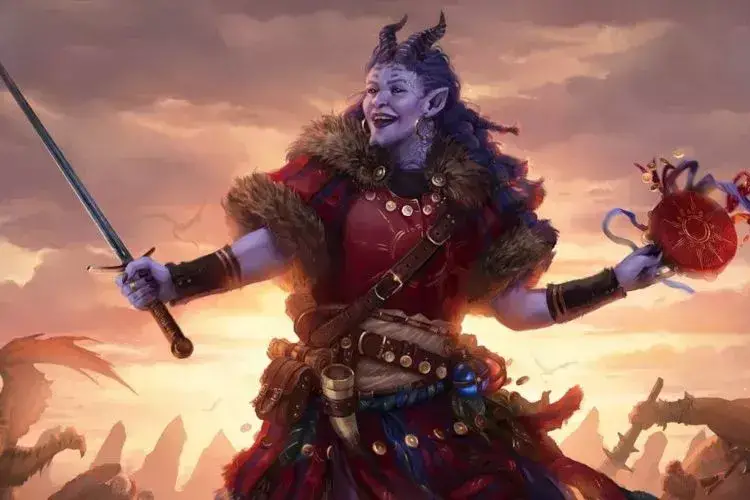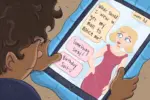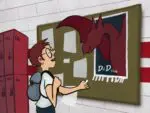Wizards of the Coast rocked the boat last year when they began rolling out plans for “OneDnD,” the newest iteration of the Dungeons and Dragons ruleset. After the success of DnD 5th Edition in gaining mainstream appeal over the past few years, this new version of the game was supposed to simplify the rules and make it even more approachable to new audiences. And indeed, although the popularization of DnD podcasts and “LetsPlay” channels has led to a massive increase in the player base of 5th edition, the ruleset has remained unwieldy and complicated. “OneDnD” aimed to cut down on the more complex parts of the game, and to make changes to the balance of it. At first, “OneDnD” was met with cautious optimism by fans of the tabletop game.
That all changed when rumors got out that WotC planned to make revisions to the Open Gaming License. The OGL was created by the company back in 2000 and was essentially an agreement that allowed third-party groups to create and monetize original content for Dungeons and Dragons. It was crucial in gaining an audience for the game, since writers and artists were attracted to the level of creative freedom DnD offered under it. Since the OGL’s inception, creators have made careers out of providing content for DnD and rely on the license for financial security. Which is why the OGL was created in the first place: to provide legal and financial protection for members of the community in perpetuity and make DnD a powerhouse in the tabletop industry.
Naturally, when the company’s plans to make changes leaked, the response was explosive. According to the leaked plans, “OGL 1.1” would give WotC a degree of ownership of all 3rd party material for the game, allow them to sell content created by 3rd party groups and entitle them to a percentage of the profits independent creators make. Companies like The Griffon’s Saddlebag and Kobold Press have become staples of the DnD community, yet their existence would be threatened by a change like this.
After the leak caused an outcry, Wizards of the Coast was quick to claim that they will continue to support 3rd party creators, but their vagueness about the reality of the forthcoming OGL changes have soured many people’s opinions of the company. And, as a result, “OneDnD” has become a popular target for the community’s frustration and derision.
People began tearing down the changes the new ruleset would bring, pointing out ways in which changes would take away from the game they had grown to love. The optimism surrounding “OneDnD” at its announcement was replaced with skepticism and backlash. Some even turned away from Dungeons and Dragons entirely, putting their interest into other tabletop games like Pathfinder or Call of Cthulhu.
To some degree, this was always to be expected, even before the OGL controversy. Changing something that a group of people love will cause growing pains and fandoms can end up being the biggest opposition to new content in their fields of interest. DnD has gone through ruleset changes before, most recently back in 2014 with 5th edition and there is always opposition to the changes WotC puts in place. This time, that opposition is exponentially greater due to the large base created by DnD 5th edition over the past decade.
Still, the negative opinions around WotC and “OneDnD” wouldn’t be nearly as bad right now if it weren’t for this scandal. If a major change to the OGL were to go into effect, many creators would have no choice but to pivot to other TTRPG markets. And even if the initial plans for the OGL change don’t go into effect after this reception, the trust between WotC and their user base has been violently damaged, possibly to the point where it can’t be repaired.
So, how can Wizards of the Coast move forward now, releasing their new projects while retaining their base? It will be difficult, given the bad blood that now exists between the company and the 3rd party groups that have grown up around it. But clearly, reassurances need to be made that those groups will still be able to exist independently in the future. The vague messages addressing the controversy released so far haven’t been enough to repair trust; more concrete effort needs to be made in the form of legal agreements. And if WotC still plans to make major revisions to the OGL, they must be done in a more open way that doesn’t leave creators feeling blindsided.
As for “OneDnD,” acceptance of the new ruleset may only come with time. There are always negative feelings about changes made to the game which are exacerbated right now because of the recent scandal. But DnD 5th Edition garnered a large audience because it simplified some of the rules from the previous version. The final version of “OneDnD” might do the same thing once people really start using it. At the same time, WotC should acknowledge the criticism they are getting from their fanbase and understand that not all of it is a result of a fear of change, but rather a valid critique of how they are changing the game.
At the end of the day, 5th Edition will still exist for people who dislike the new ruleset, and as long as the OGL remains in place, creators will be adding new content to it. Hopefully, Wizards of the Coast will learn from this controversy and avoid further action that alienates their audience. And if they persist in harming 3rd party creators, a plethora of other excellent TTRPGs exist for fans to check out. Wizards of the Coast does not and should not possess a monopoly of the tabletop industry. Needless to say, their audience has other outlets to which to turn should they treat them poorly.
















